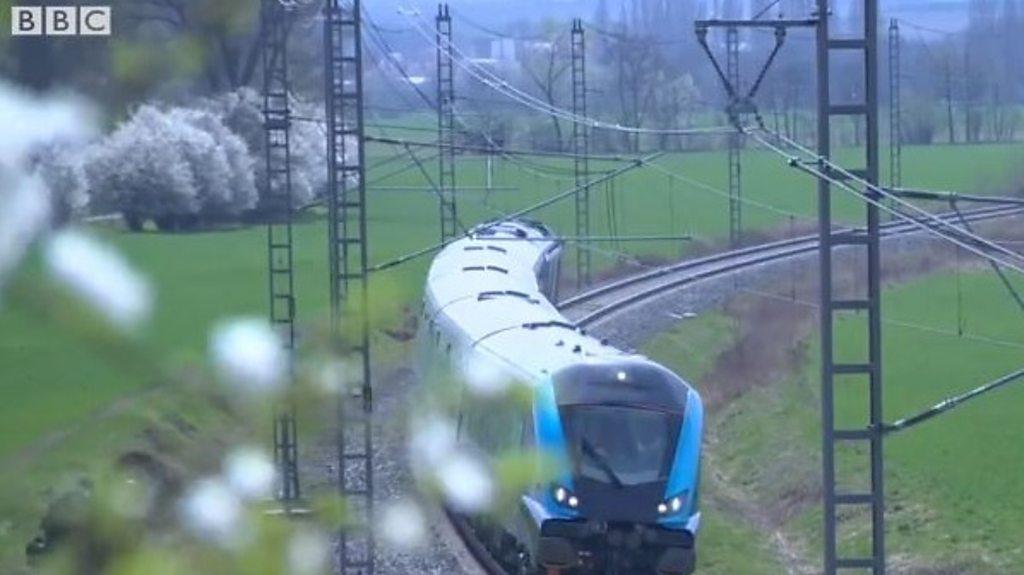TransPennine £2.9bn rail upgrade will cause 'major disruption'
- Published
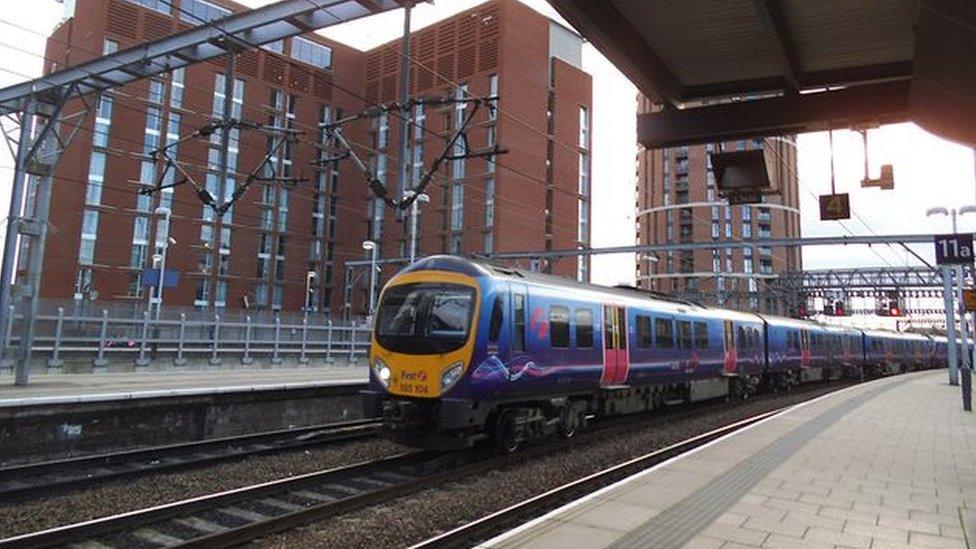
Services across the Pennine rail route would be seriously affected by the planned works
Passengers on TransPennine trains will face five years of major disruption during a planned £2.9bn upgrade of the route, a leaked letter has revealed.
The letter from Network Rail to Transport Secretary Chris Grayling said there would be line closures for 39 weeks a year from 2020 until 2024.
The project would eventually cut journey times between York, Leeds and Manchester and boost capacity.
The Department for Transport (DfT) said it would keep disruption to a minimum.
The letter from Rob McIntosh, at Network Rail, says the route is "a Victorian construction that passes through the heart of the Pennines with its inherently challenging topography".
The minister is warned that access to the many tunnels and bridges along the routes "will be limited and difficult".
Mr McIntosh says: "This level of ambition cannot be delivered without significant disruption during the course of the works."
During the upgrade work, journey times would increase by 15 to 25 minutes and "constrain capacity".
"We have considered ways in which we might deliver the work to shorter timescales," said Mr McIntosh.
"Our judgement is that this will increase costs and lead to levels of disruption that stakeholders would find unacceptable and are potentially damaging to the local economy."
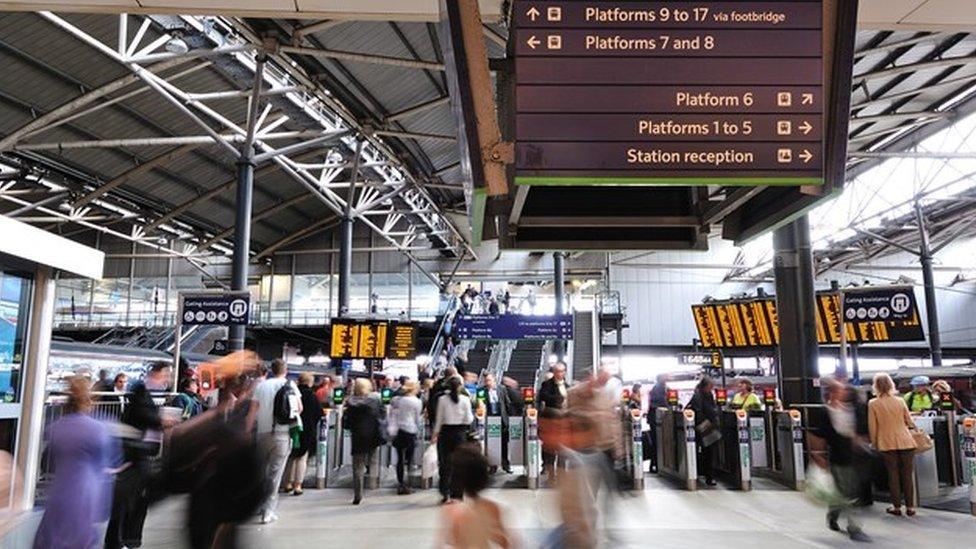
The railway station in Leeds used by more than 100,000 passengers a day
Network Rail had considered further improvements but decided the extra work would cause a level of disruption which would be "unbearable for passengers".
It would mean Huddersfield would lose its rail link to both Leeds and Manchester for many months, Mr Grayling was told.
Communities at Ravensthorpe, Mirfield, Batley, Dewsbury, Marsden and Slaithwaite "would be hugely affected" as buses would replace rail services.
Mr McIntosh also points out the "significant impact on the valuable TransPennine freight traffic such as biomass from the docks of Liverpool to the power stations of South Yorkshire who provide electricity for many of the communities affected".
Network Rail would not comment on the leaked letter but said it had submitted "potential infrastructure options" to the DfT for consideration.
A spokesperson for the DfT said it wanted to deliver the upgrade "as quickly as possible".
The spokesperson added: "However, we also want to keep disruption to a minimum, which is why the upgrade will be delivered in phases from Spring 2019."
Labour's Andy McDonald, the shadow Transport Secretary, said it was the Transport Secretary's responsibility to look at all possible options to mitigate disruption.

Analysis
Spencer Stokes, Transport Correspondent, BBC News, Yorkshire
It was back in 2011 that the former Chancellor of the Exchequer announced that the main TransPennine rail line from Leeds to Manchester would be electrified to speed up services.
That plan was all part of a wider vision of linking northern cities to form a so-called Northern Powerhouse.
If things had gone to plan then the route would have been wired up by this year. But delays to other electrification schemes saw the TransPennine project paused before being unpaused and then redefined as a bigger overall upgrade.
The updated scheme is likely to see a two-track railway being replaced with four tracks to allow fast trains to overtake local services.
The line will be electrified - but to the disappointment of some that may not include the central section under the Pennines between Stalybridge and Huddersfield.
Stations are also being rebuilt and signals will use new digital technology.
All of that work will lead to five years of disruption according to Network Rail, but by 2025 the railway could be delivering Leeds to Manchester journey times of around 35 minutes.

- Published22 September 2017

- Published9 August 2018
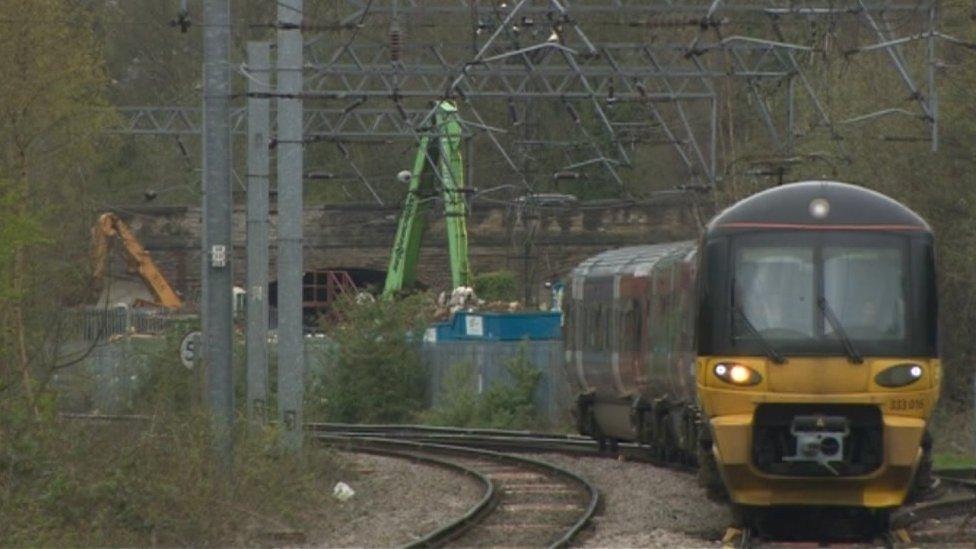
- Published13 July 2018
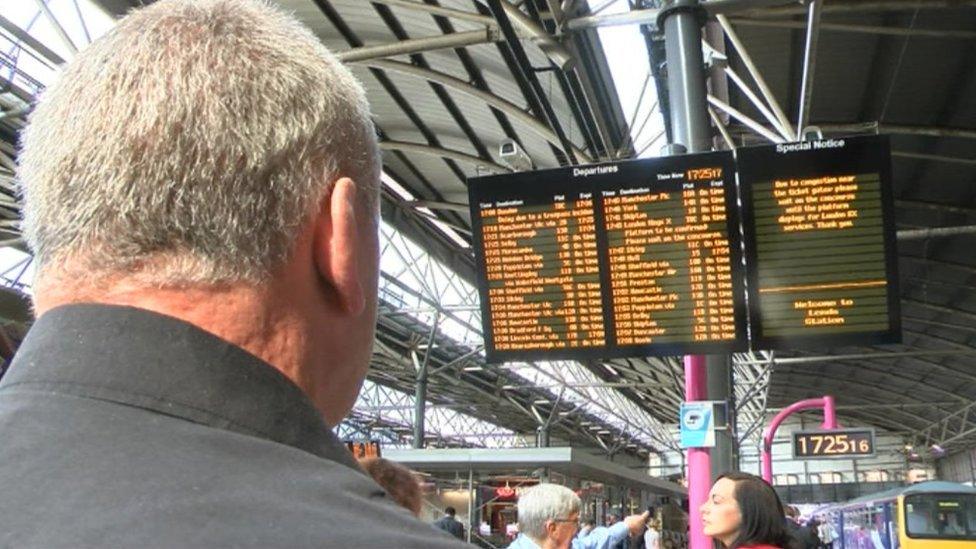
- Published18 April 2018
